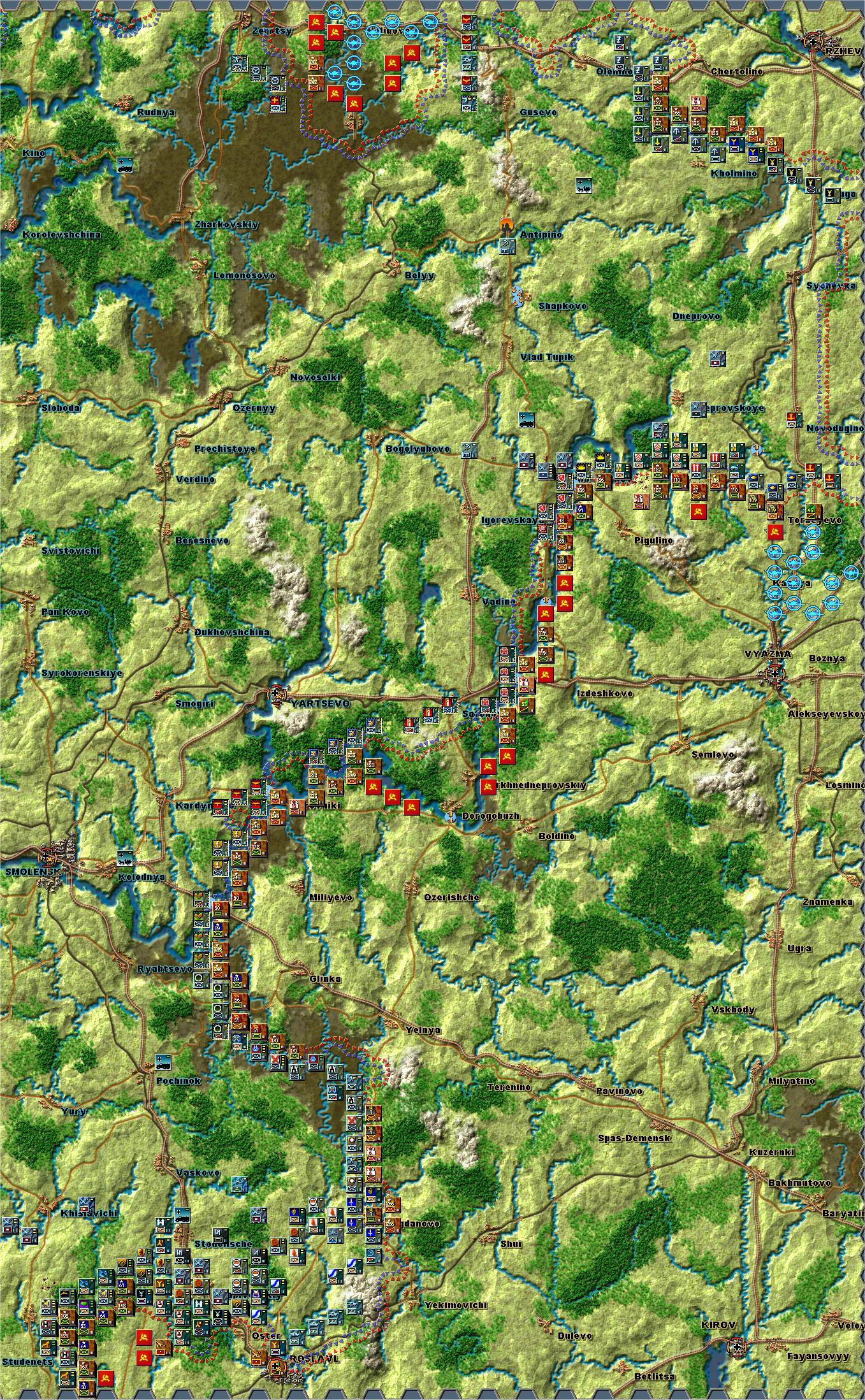
General Keating comes agonisingly close to ROSLAVL, but falls just short (see bottom). He has come close to RZHEV and is in the general area of VYAZMA, though not really close enough to make anybody nervous. So from a geographical point of view, Keating has done quite well. However, he has fallen well behind the OKH time table for taking vital objectives. Time spent here is time that the Germans won’t have for their attack on MOSCOW.
OKH, and certainly Hitler himself will be very unhappy with the casualties that Keating has taken. A total of twenty nine Axis units have been eliminated, which amounts to several divisions worth of men. Perhaps his future career in the Wehrmacht will be conducted somewhat further from centre stage than has been the case up till now.
Comrade General Trout, one suspects, is already off stage, conducting events
for the last two days from the comfort of his special train en route to a Black
Sea dacha. He can take some comfort from the fact that he has done everything
in the defence of his country that could reasonably be expected of him. His
joy will be mitigated by the certain knowledge that nobody, (apart from victims
of show trials), has ever called Comrade Stalin reasonable.
Epilogue
Trout’s margin of victory was 2181 points, which is overwhelming in anyone’s language. Trout scored 1690 points for eliminating 29 Axis units, many of which did not have to die. Keating also failed to get across the Dnepr in good order and in a timely fashion. This cost him many unit casualties and delayed the fall of both Rosh and Mobile, which then gave even more points to Trout.
Trout obviously counterattacked brilliantly, but also conducted a good all-round defence. He used the Soviet units that can entrench and large stacks to clog up the easy avenues of German advance, and preserved most of his men from destruction. More importantly, most of those Soviets who did die, died in supply and often in good defensive terrain, extracting the highest possible price for their demise.
Both sides had a continuous variety of challenges to solve, and large range of possible solutions available at any one time. No one decision was critical, but victory, in this instance, was the result of steady accumulation of tactical victories, which is as it should be.
